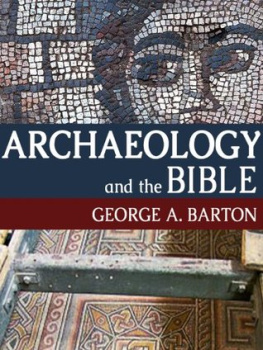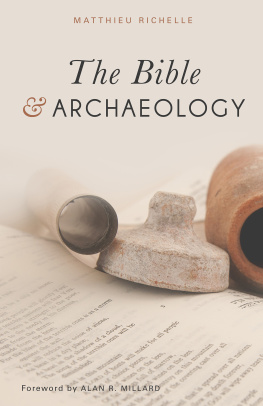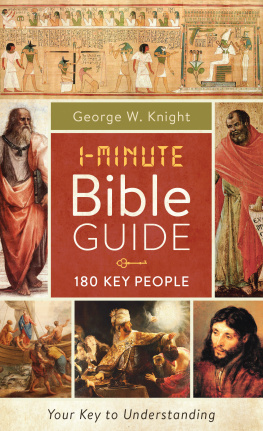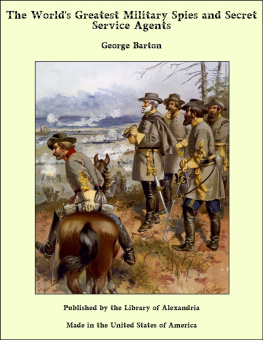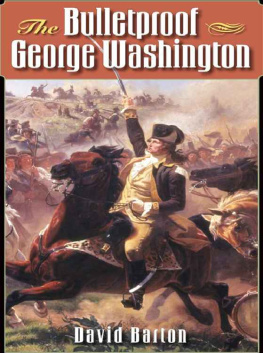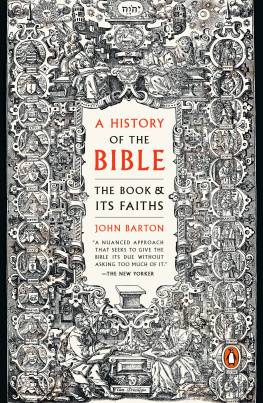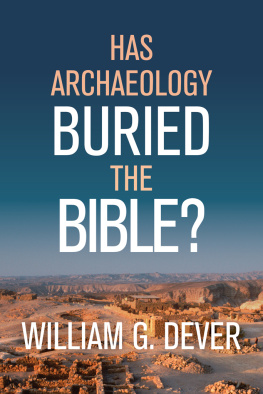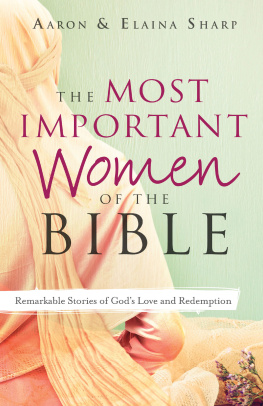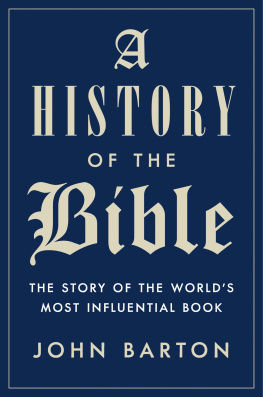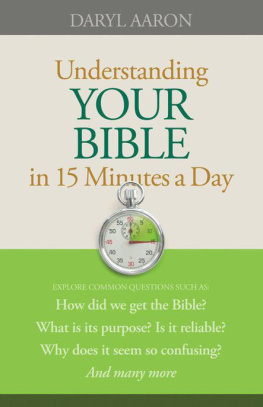ARCHOLOGY AND THE BIBLE
A Hillside Street in Roman Jerusalem along which
Jesus and the Disciples may well have walked
(after Germer-Durand).Frontispiece.
Green Fund Book, No. 17
ARCHOLOGY AND
THE BIBLE
BY
GEORGE A. BARTON , Ph. D. , LL. D.
PROFESSOR OF BIBLICAL LITERATURE AND SEMITIC LANGUAGES
IN BRYN MAWR COLLEGE; SOMETIME DIRECTOR OF THE
AMERICAN SCHOOL OF ORIENTAL RESEARCH IN JERUSALEM
PART I
THE BIBLE LANDS, THEIR EXPLORATION, AND THE RESULTANT
LIGHT ON THE BIBLE AND HISTORY
PART II
TRANSLATIONS OF ANCIENT DOCUMENTS WHICH CONFIRM OR
ILLUMINATE THE BIBLE
PHILADELPHIA
AMERICAN SUNDAY-SCHOOL UNION
1816 Chestnut Street
Copyright, 1916, by
American Sunday-School Union
All rights vested in and reserved by
American Sunday-School Union
First Edition, May, 1916.
Second Edition, June, 1917.
To
CAROLINE B. D. BARTON
Faithful Comrade in
the Campaign of Life
PREFACE
For a hundred years or more the explorer and the excavator have been busy in many parts of the world. They have brought to light monuments and texts that have in many cases revolutionized our conceptions of history and have in other cases thrown much new light on what was previously known.
In no part of the world have these labors been more fruitful than in the lands of the Bible. In Egypt and Babylonia vistas of history have been opened to view that were undreamed of before exploration began. The same is true for that part of the history of Palestine which antedates the coming of Israel. Information has also been obtained which illumines later portions of the history, and makes the Biblical narrative seem much more vivid. It is now possible to make real to oneself the details of the life of the Biblical heroes, and to understand the problems of their world as formerly one could not do. Exploration has also brought to light many inscriptions in the various countries that confirm or illuminate the traditions, history, poetry, and prophecy of the Bible. The sands of Egypt have even yielded us some reputed new sayings of our Lord.
It is the purpose of this book to gather into one volume the most valuable information of all sorts that the excavations in Bible lands have afforded, and to put it in such form that it may be of service to the pastor and Sunday-school teacher. An attempt has been made so to present the material that one may not only have the wealth of illumination for Biblical study that exploration has produced, but also that he may possess an outline of the history of the exploration and of the countries sufficient to enable him to place each item in its proper perspective. Whether in handling so large a mass of data the writer has achieved his aim, the reader must judge. The preparation of the volume was undertaken at the request of the Board of Managers of the American Sunday-School Union, for publication under the John C. Green Income Fund,a fund founded in 1877 for the purpose of aiding ... in securing a Sunday-school literature of the highest order of merit ... by procuring works ... germane to the objects of the Society. The foundation requires that the manuscripts procured by the fund shall become the exclusive property of the American Sunday-School Union, and, that the selling price may be reduced, the Society is prohibited from including the cost of the manuscript in the price of the book.
This work is confined to those phases of archology upon which light has been thrown by exploration. No attempt is made, for example, to treat the constitution of the Hebrew family, or the dress worn in ancient Palestine, for these are subjects to which exploration has contributed no new knowledge.
The texts published in have, with few exceptions, been freshly translated by the writer especially for this work. This is true of all except the majority of the Egyptian texts and two Greek papyri which were not accessible in the original. Translations of these were taken from the works of well-known scholars, to each of whom credit is given in connection with the passage quoted from his work. The quotations of Palestinian place names from the inscriptions of the Egyptian kings, of which the writer has made a special study, are based on his own translations of the originals.
An archological fact, or a text brought to light by excavation, is often of little significance apart from its interpretation, and the interpretation of such data frequently varies according to the point of view occupied by the interpreter. As stated in the foreword of , it has been the writers aim throughout to maintain a neutral attitude on controverted points.
Not the least service that archology has rendered has been the presentation of a new background against which the inspiration of the Biblical writers stands out in striking vividness. Often one finds traditions in Babylonia identical with those embodied in the Old Testament, but they are so narrated that no such conception of God shines through them as shines through the Biblical narrative. Babylonians and Egyptians pour out their hearts in psalms with something of the same fervor and pathos as the Hebrews, but no such vital conception of God and his oneness gives shape to their faith and brings the longed-for strength to the spirit. Egyptian sages developed a social conscience comparable in many respects with that of the Hebrew prophets, but they lacked the vital touch of religious devotion which took the conceptions of the prophets out of the realm of individual speculation and made them the working ethics of a whole people. Archology thus reinforces to the modern man with unmistakable emphasis the ancient words, Men spake from God, being moved by the Holy Spirit (2 Peter 1:21).
The writer is under obligation to all his predecessors. Endeavor has been made in the footnotes to acknowledge each individual obligation. Lest any oversight may have occurred there, he would here express both his indebtedness and his gratitude to all who by their various explorations and studies have preceded him and been his teachers.
Of these, Prof. R. A. Stewart Macalister should, perhaps, be singled out for an especial word of gratitude, for in of Part I his work of excavation has been quoted more frequently than any other. This apparent partiality is due to the fact that Gezer was excavated more completely than any other Palestinian site; that, because of its early and long-continued occupation in ancient times, it reveals a great variety of civilizations; and that, in The Excavation of Gezer, Prof. Macalister has presented the results of his work with a completeness and a degree of intelligibility that no other excavator in Palestine has approached. He has made his work a model of what such a publication should be, and has thereby made us all his debtors.
Especial thanks are due to Dr. George B. Gordon, Director of the University Museum, Philadelphia, for his kindness in furnishing an advance copy of the proof-sheets of Volume X of the Publications of the Babylonian Section of the museum, from which the material embodied in of Part II was translated, and to Prof. Morris Jastrow, Jr., and Dr. Edward Chiera for the benefit of their fresh collation of the text. This was of considerable importance, since Dr. Langdons copy of large portions of it had been made from photographs, rather than from the original tablet. The writer is also indebted to Prof. W. R. Arnold, of Andover Theological Seminary, for helpful suggestions concerning the interpretation of a passage in the temple-papyrus from Elephantine which has hitherto baffled translators. Thanks are also due to the following authors and publishers for permission to reproduce illustrations contained in books written or published by them: The Palestine Exploration Fund, for permission relating to Warrens

